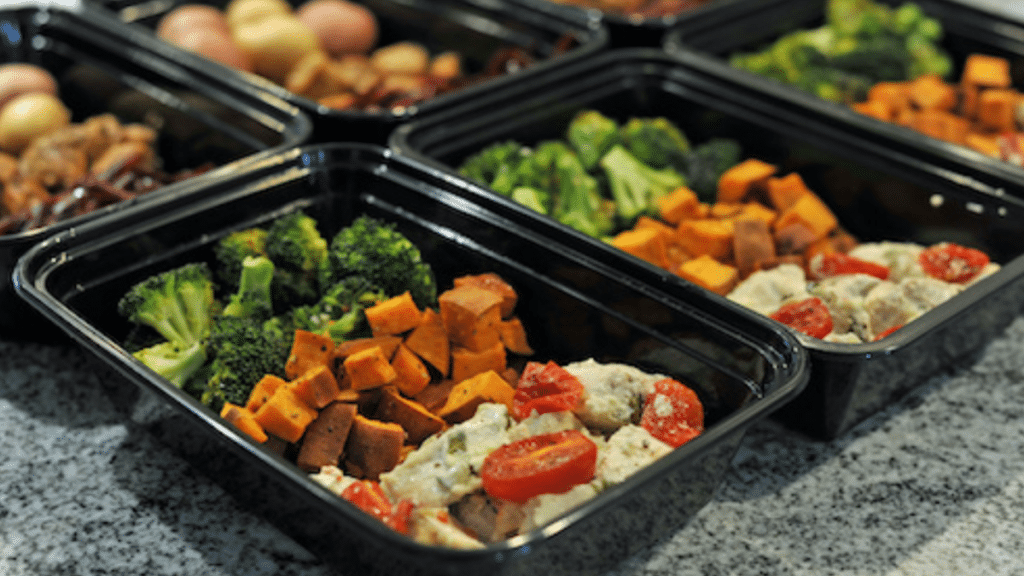Most people these days are busy; you work, you’ve got kids in school, you have social engagements, and so much more. When it comes to food, you try to do what’s best for your body and the environment, but it’s so hard. Convenient food is typically not healthy, and it often comes in packaging that ends up in the landfill. Still, who has time to cook three meals a day and store it properly? The dilemma of pre-packaged food is a tough one, but solutions do exist.
Sustainability
One of the biggest issues with pre-packaged food is the loads of trash that come with it. Whether it’s a microwave meal or a snack pack from the market, you’re typically dealing with cellophane, styrofoam, and plastic, all terrible for the Earth. It sits in landfills for decades or longer, resisting the breakdown process and slowly leaking pollutants into the environment. At the same time, they’re quick to grab and easy to eat when you’re on the go.
Fortunately, there are alternatives to choose from. One of the reasons people reach for pre-packaged food is they are unprepared. You can combat this problem by planning one day a week for meal preparation, storing food in reusable containers and eliminating waste entirely. If your life is too busy for that, you can still buy pre-packaged food, just be mindful of the brand. Ideally, your pre-packaged food should come in containers you can reuse or recycle.
Look at Simply Good Jars as an example. All their products come in containers that can be reused or recycled. You can enjoy one of their salads then use the jar for your own meal prep. Green Chef is another planet-friendly option, if you have a little time to cook. This company offers USDA certified organic meal kits with recyclable cardboard boxes and ice packs. They also offset their delivery emissions and any plastic in each box.
It’s important to note that navigating the balance between pre-packaged food and sustainability is not an all-or-nothing game. You don’t have to change your entire life overnight. You can start buying more eco-friendly packaging for a few days a week and meal prep for the other days. You can also try to make larger meals at dinnertime and pack lunches with leftovers. And when you do find yourself with packaging to toss, try to recycle and compost as much as possible.
Health
The other large issue involving pre-packaged food is centered around your health. Many pre-packaged meals are rife with preservatives and chemicals that are not good for your body. Yes, even those low-calorie ones you can pop in the microwave. They are typically laden with unhealthy levels of sodium and fat and deficient in the nutrients you need to get you through the day. Not to mention the fact that they don’t usually taste very good!
You buy these meals because they’re quick and easy — convenient. But the consequences can be detrimental to your health. You may find yourself gaining unwanted weight, feeling fatigued, and even getting sick more often. A lack of nutrients from too many unhealthy pre-packaged foods can take a major toll. The decision of whether to buy unhealthy pre-packaged food truly comes down to convenience versus consequences.
In the interest of doing what’s right for your body, you can ensure the majority of your meals are rich in vitamins and minerals essential for a healthy body. This doesn’t have to mean you always cook at home, though that is often the best option. You can also read labels and research the companies that offer pre-packaged meals. You can find great salads, soups, and bowls with fresh, colorful ingredients ideal for a well-balanced diet.
Social Consciousness
Now that you’re considering becoming more health-conscious and more environmentally conscious, you can factor in social consciousness. Typically, the highly processed, unhealthy pre-packaged meals are manufactured by large corporations that frequently find themselves mired in one scandal or another. As a result, these businesses often find their products boycotted and their practices protested against.
When you think about it, your money, also known as your “soft dollars,” is the only tangible way you can make a real difference when it comes to the market. Where you spend your money matters. When you buy highly processed pre-packaged foods from large corporations that are careless with the products they make for their customers, you show your approval. Take those dollars away and spend them on a company you can believe in.
Perhaps one of the best ways to raise your voice toward causes you believe in today is to spend your money on businesses you believe in. Do your research and buy food, both fresh and packaged, from small businesses working to do things differently. Buy your fresh food locally as often as possible to support your farmers, and buy your packaged food from sustainable companies that care about their customers. Every dollar counts.
You Can Have It All
In the end, the amount of extra time you put into researching quality companies you can be proud to support is worth avoiding the short and long-term consequences of buying unhealthy pre-packaged food. The same rule applies to meal prepping. It might take a few hours every Sunday to get ready for the week, but you can find tips and tricks to minimize your time and maximize your health and your impact on the environment.
And you can have the best of both worlds. You still get your pre-packaged meals; they just come from a source you know. You still get the convenience, but you greatly decrease the consequences of eating unhealthy food in unsustainable packaging. So, you see, you don’t have to choose either convenience or sustainability.
